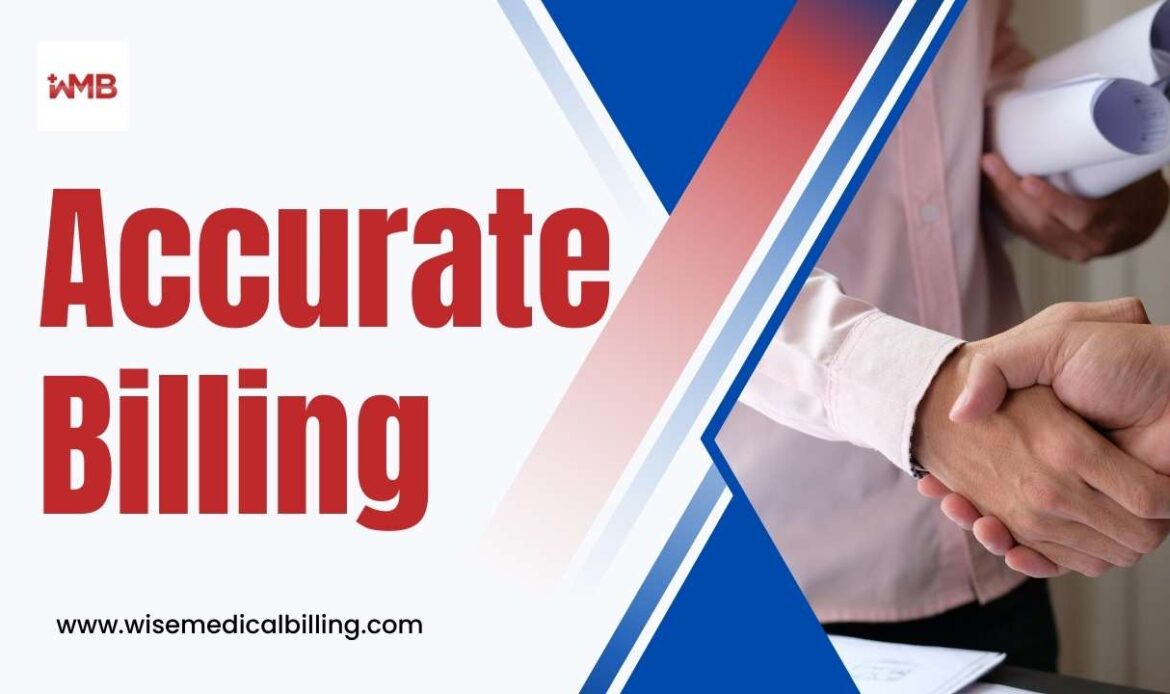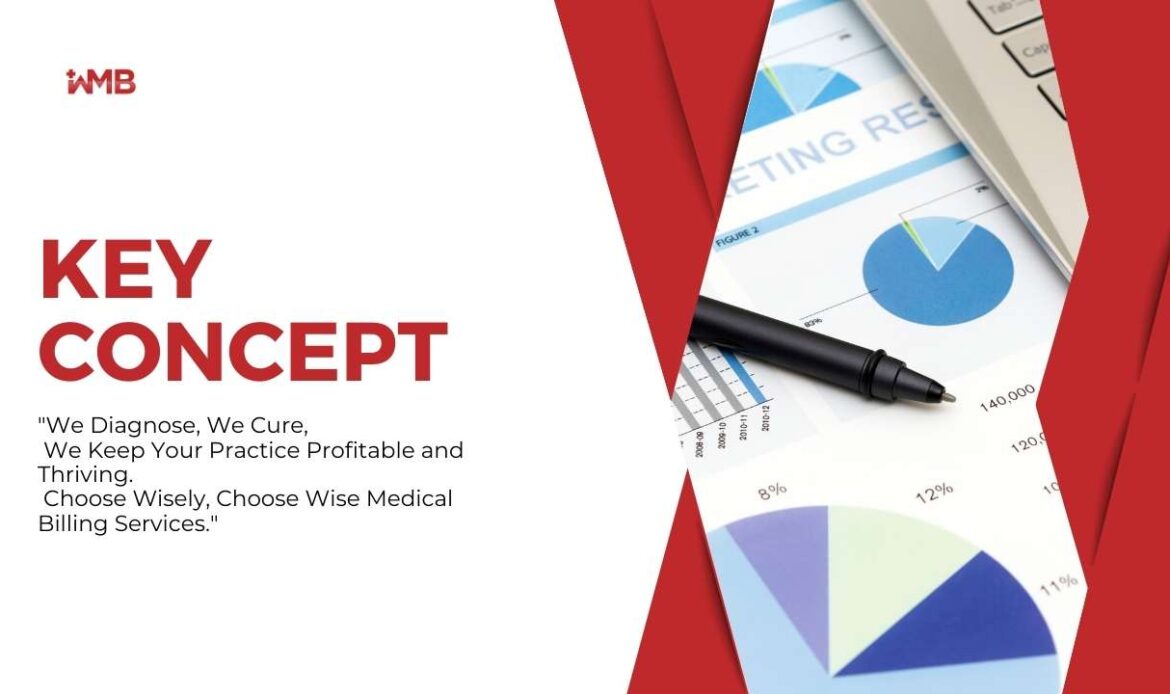Commercial insurance billing is the process of transforming claims into cash. It serves as a protective shield against business loss, sudden health emergencies, and accidents. The process involves contacting private insurance companies for reimbursement of the billing that their plans cover. It covers more considerable expenses in medical billing or property damage businesses.
The actual amount depends upon the selected policy. Understanding commercial insurance is essential to successful reimbursement.
Comprehensive knowledge helps to comply with insurance regulations and prevent application denials. Service providers should understand the thorough process for claims, which helps promote timely services and enhance financial revenue. Familiarity with correct service coding and regulations helps in negotiating with insurance companies.
This guide covers all relevant aspects and challenges in commercial insurance billing. Let’s explore commercial insurance and how to navigate its billing in detail.

What is Commercial Insurance?
The term commercial is tailored to the business community to maintain its presence in critical situations. The risk factors can vary according to services and industry type. For example, in the construction business, the owner has concerns about occupancy, property damage, employee injury, or fire. A business signs an insurance contract by choosing a monthly or yearly payment plan. This insurance is a backup to protect the company from property damage, accidents, or any natural disaster that can affect its regular operation.
Types of Commercial Insurance Billing
Group Insurance
Companies subscribe to group commercial insurance for their employees or business partners. This type proves cost-effective because the risk is divided equally among all members. Employers have excellent knowledge about insurance policies, so they negotiate well with providers to minimize costs. Group insurance covers members’ health-related bills and compensates them as life insurance.
Individual Insurance
This type refers to insurance bought by a single buyer or entity. The insurer can get tailored solutions to meet his specific needs, and access to premium services is also high in individual plans. The individuals must provide their medical history because the risk is not pooled. Rates and services can be affected by any health risk.
employer-sponsored
This insurance type refers to employers’ financial support in an emergency for their employees. They pay some portion of medical expenses or compensate for lost age. All these premium benefits help to attract and motivate employees to perform their duties.
Key Players in commercial insurance (payers, providers, patients)
- Payers: The involved personnel can have private insurance, individual providers, or other services offered by the government. They set the benefits and regulations for insurance policies and maintain the standard costs for application submission.
- Providers: These organizations or healthcare units that attend to the patient and offer their premium services for quality health. They provide the necessary documentation for claims approval, such as medical reports or medication invoices.
Patients or consumers: The policyholders receive medical care and submit the expense details to payers for coverage. The company provides all required documents and cooperates with payers for essential information.

The Commercial Insurance Billing Process
Step By Step explanation of the billing process
Contact with the insurance company: The service providers contact insurance companies to learn the policy plan and coverage range of patients’ expenses.
- Receiving services with documentation: After verification, the patient receives medical care, and health providers prepare all documents as proof of successfully rendered services.
- Claim by using coding: The claim applications are prepared after compiling the necessary documents and filing specific codes regarding services.
- Claim verification: The insurance company evaluates the accurate coding and authenticity of documents to prove the claim.
- Final payment: After verification, the healthcare providers receive final payments for their services.
- Follow-up for denials: If the application receives a denial on claims, further processing is required to solve the discrepancies and reasons for objection.
Key components of a commercial insurance claim
- Details of patient and service provider
- Date and time of receiving services
- Exact filling of codes regarding services
- Charges on selected services and details about any earlier payment by patients
- Policy number to identify the file promptly
Common billing codes and formats (CPT, ICD10, HCPCS)
- The CPT coding is used to define surgical and diagnostic services provided by healthcare units. These codes also describe regular doctor visits.
- ICD-10 codes explain the patients of specific medical conditions, such as hypertension, asthma, etc.
- HCPCS are specific codes that describe the use of surgical equipment and services that are not covered in CPT coding.

Key Concepts in Commercial Insurance Billing
Eligibility and benefits verification
Advance verification and evaluation of patients’ coverage plans help to make informed decisions. The patient and healthcare providers can prevent billing-related disputes. The patients can choose services according to their coverage range and know their billing responsibilities in advance.
Preauthorizations and pre-certifications
Preauthorization is the process of getting permission from insurance to provide costly services. Pre-certificates prove that the suggested services are necessary for a patient’s quality of life. Payer companies obtain both approvals to ensure that providers will be compensated for their services. Advance verification prevents claim denials for reimbursement applications.
Claim submission and follow-up
Claim form submission is the process of filling out accurate codes and documents to ensure successful reimbursement. The requesting party should fill out all the information accurately and follow up on the applications regularly. Timely checking helps resolve any objections on time and smooth the process of financial cash flow for healthcare providers.
Denial management and appeals
Billing companies resolve denials by evaluating the reason for the objection. The process involves re-appealing for reimbursement by correcting the filing information and any additional documents. This helps resolve the issues promptly, and providers receive their owed costs timely.
Challenges in Commercial Insurance Billing
Complexity of payer requirements and rules
Each payer has different regulations and requirements for application submission. This difference in coding, cost, and rules can create confusion for accurate submission. Several insurance companies serve multiple states with individual standards in each location. This situation becomes challenging for applicants and can create errors in case of non-compliance.
Frequent changes in coverage and benefits
Insurance companies frequently update their policies to change the deductible rates and coverage plans. These updates misguide patients, who can suffer from surprise billing for attending services without knowing their coverage plan. Companies need to inform billing staff about updated instructions, which complicates the application process for successful reimbursement.
A high volume of claims and paperwork
LONGITUDE paperwork or high-quality requirements cause delays in the claim process. Overwhelming administrative work becomes a hassle for billing practices, and error chances increase. Payers need to maintain a large amount of data and prepare multiple papers for successful submission. All these additional requirements create complexities in the billing process.
Best Practices for Commercial Insurance Billing
Accurate coding and documentation
Accurate coding and timely completion of documents enhance the application process. Therefore, billing services should claim coverage after completing the required criteria. They should conduct frequent training and workshops to educate their staff about updates in insurance regulations.
Efficient claim submission and follow-up
Verify all the details entered before the final claim submission, such as re-checking the patient’s personal information, policy number, and other additional data. Prefer the use of e-platforms for robust submission and approval. The online submission allows you to check the application status to resolve any issues quickly.
Effective denial management and appeals
Analyze the reason for the denial in detail and apply again within the due date. Again, observe the created issue thoroughly to resolve it according to the insurance regulation. Update the application form with accurate filling and attach any additional documents to delete the denial.
Final Analysis
Understanding the regulations and logistics regarding Commercial Insurance Billing is the final key to gaining financial stability. This helps maintain the quality of healthcare and prevent denials. An expert provider can fill in the accurate coding, and a thorough knowledge of follow-ups facilitates successful reimbursement. It enables the healthcare provider to improve patient experience. Overall, navigation through medical complexities is possible with a complete understanding of requirements.
Wise Medical Billing LLC
“We Diagnose, We Cure,
We Keep Your Practice Profitable and Thriving.
Choose Wisely, Choose Wise Medical Billing Services.”
Wise Medical Can Keep Your Practice Profitable Despite Medicare Cuts
Top Features
- Medical Billing
- High Rate Negotiation
- Revenue Cycle Management























